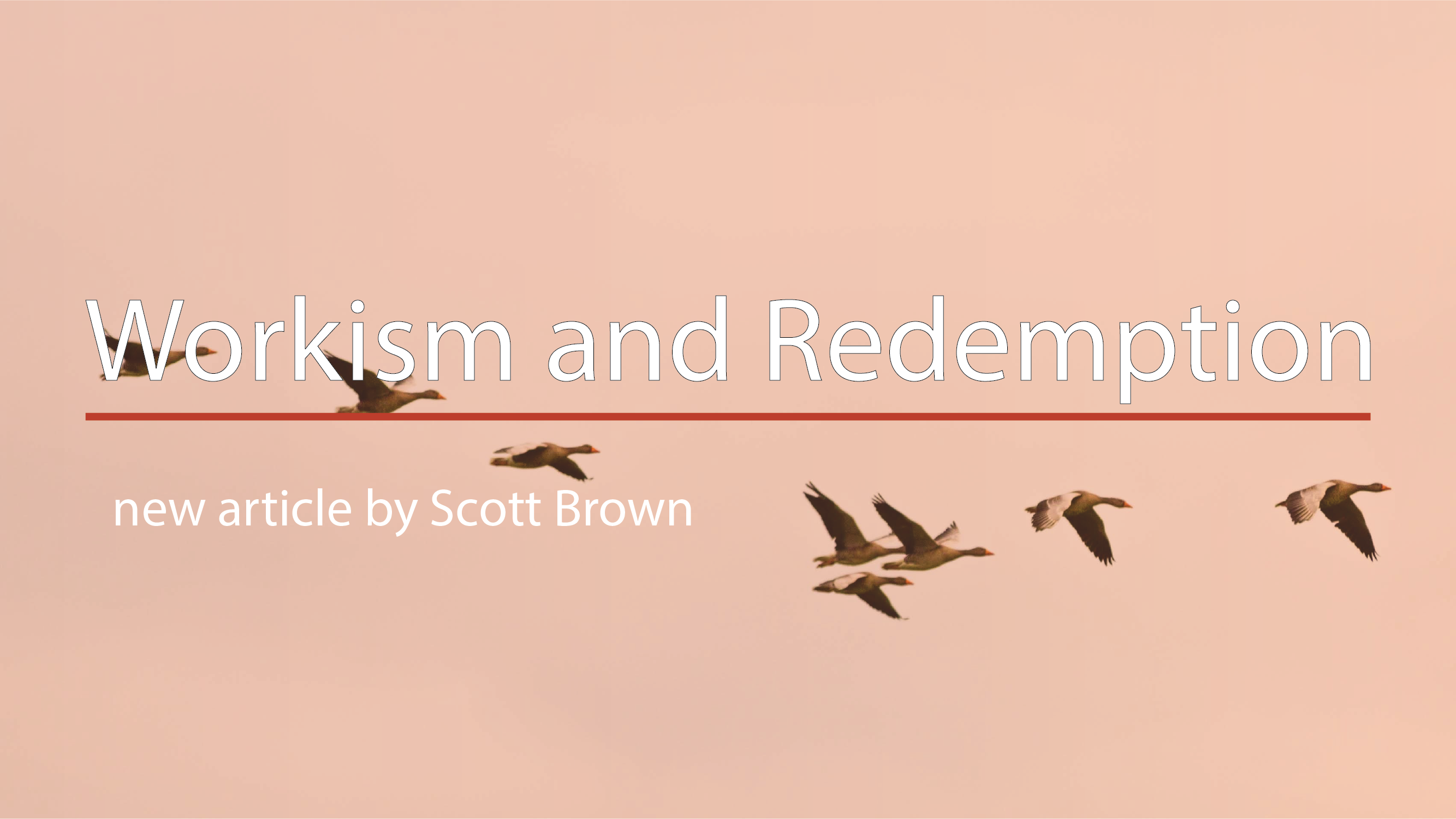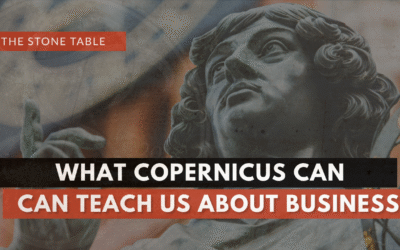Workism and Redemption

Workism and Redemption
Workism can be briefly defined as “yielding your source & sense of identity to your work”. It is a practice, almost a religion even in the Western world, that is defined by a constant need or desire to work, a collapse of self without work, and a desperate attempt to create security, safety, and sustenance (concepts of salvation) through your work. That’s a brief outline of workism.
Redemption is the “buying back” of something, or the “repurposing” of something as I like to think of it. Redemption is the repurposing that Christ paid for in His atoning death on our behalf – He bought us back from the penalty of sin, death, and brought us back into right relationship with God through His sacrifice. We are redeemed because of Christ’s work in salvation.
Further, salvation can be defined today as “deliverance or preservation from destruction or evil”; however, we know it as the deliverance from the power or effects of sin & death.
Workism entails a facet of self-salvation; a hidden or subtle belief that one can save oneself from death, evil, or destruction through their own labor. Let’s look at redeeming our work.
Self-Preservation through Workism
It’s not uncommon for one to think that their sole source of safety or deliverance is found in their work, or in their paycheck. Even Solomon wrote in Ecclesiastes 7:12, “Wisdom is a shelter as money is a shelter, but the advantage of knowledge is this: Wisdom preserves those who have it.” (NIV). Therefore, it is not uncommon to see money as a shelter – it answers a whole lot of problems (Ecclesiastes 10:19)!
However, when we see deliverance coming from work, we see work as something to be worshipped, whether we admit that or not. We see workism as a new religion and our work becomes what we worship.
I love this verse from Romans 1:25, where Paul writes about the corruption of man, “They exchanged the truth about God for a lie, and worshiped and served created things rather than the Creator—who is forever praised. Amen.” (NIV).
This is such a powerful verse, especially in reference to workism today. We worship and serve created things as a society today, too, don’t we? That’s what workism is; the next project is our answer. That’s what consumerism is; the next product is our answer. That’s what commercialism is; the next profit is our answer.
Paul saw corrupt man as exchanging the truth they knew about God (as Romans 1 says we all know) for a lie – willingly swapping out the depth of God for the shallowness of man’s created things. Yet, we still do this today. Our world still suffers from this crippling depravity today.
God created work to be an act of good and He created work as worship & obedience to Him (Genesis 2:15). He also created us to receive salvation through the work of Christ, not the work of our hands. Our deliverance was never meant to come from created things, but always through the Creator of all things.
Evil cannot be repelled by work. Destruction cannot be denied by work. Death cannot be conquered by work. Yet, we exchange the truth and saving grace of our Lord for this lie when we practice workism. We are stating, not with our words but with our actions, that we believe our work will be the answer to all our problems. We define ourselves as under the false “saving power” of our work. That is workism, and that is an attempt at self-preservation; something God never meant for us to take on ourselves.
Dependency Over Workism
I remember living paycheck to paycheck before I was saved. I remember being horrible with money and completely in over my head in all areas of my life financially. I remember, vividly, waiting & waiting on that next paycheck to hit, just to spend every ounce of it on bills & groceries within 24 hours of receiving it. I did that for years.
I was putting my hope in that paycheck. Work was my source! How could I live without that?
It’s a funny thing, really. I think the world would tell you it was a simple switch of perspective, but it was more than that. When God entered the picture, I saw who Jireh was. I saw who Provider was, and it wasn’t work. It was like someone lifted the veil off of work and there was God, standing above it and working in my life through it.
Workism keeps the veil on.
What if you saw through work, to the One who was working on your behalf? This would enable you to work anywhere in the world, doing any job in the world, and know that God was with you, providing through the labor of your hands. Your work as worship would become a song to Him; a sweet-smelling aroma that recognizes His providence in all things.
God gave us power to get wealth (Deuteronomy 8:18), work simply became an outlet for that to flow. Yet, with things like workism, we so often worship that outlet rather than the source that flows through it.
Imagine relying on an outlet without electricity to power your house. You’d be at family Christmas trying to turn your Christmas tree on without power. You’d look like a fool.
That’s what workism is selling to us – an outlet without power. We recognize the outlet, but not the generator that powers the electricity flowing through it. We get ourselves like three steps out of place: three steps away from grace.
But GOD! C’mon somebody. God created us to depend on Him for daily needs. He wants to be our provider, He wants to be our sustainer, and He wants to be our loving Father. How many parents don’t want to supply the needs of their children?
God is our Father. Depending on Him allows us to receive that flow of power through the outlet of work – and not look like a fool on Christmas.
Workism’s Nail in the Coffin
Recognizing our lack of dependency on God can be hard to see. It isn’t the most obvious thing sometimes, but it has some of the most dangerous effects down the road. We must be aware of ourselves – how we treat our work, paychecks, and our Lord are all indicators of where we stand with our dependency.
Workism can prompt a “freak out” over small things, like thinking you won’t have enough money for this next bill or your next desired purchase. You might find some sharp tensions in the home over a small purchase or find yourself clawing for every dollar & cent you can get out of work or others. (Shoutout to those long lunch breaks).
If we recognize God as our provider, not work, we can absolve ourselves of the stress of worrying about our provision. It doesn’t mean we don’t work or pay our bills intentionally, but it means that we can receive God’s peace in all of our circumstances because He is our source, not work.
“Look at the birds of the air; they do not sow or reap or store away in barns, and yet your heavenly Father feeds them. Are you not much more valuable than they?” (Matthew 6:26).
God’s love is more than enough. Put your faith in Him, and those details will fall by the wayside.







